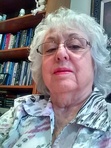Linda Pendleton's Blog, page 2
December 14, 2019
James Martin Peebles The Man, The Mystic, The Seeker of Truth, Historical Biography by Linda Pendleton
New Nonfiction Book by Linda Pendleton,
James Martin Peebles, The Man, The Mystic, The Seeker of Truth. Historical Biography 1822-1922
“If I know my own heart, it beats in accord with the divine effort to better humanity, and throbs in tenderest love toward all races and the people of all lands.”~Dr. James Martin Peebles, Immortality, 1880
A compelling historical biography of an extraordinary man, James Martin Peebles, an intellectual, reformer, physician, author, who, with his remarkable achievements and his fascinating life story is a testament to the connection between creativity, freedom of thought, and humanity, all embraced and overshadowed by the world of spirit.
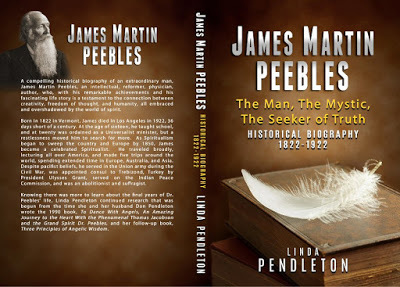
Print and Kindle
~Linda
James Martin Peebles, The Man, The Mystic, The Seeker of Truth. Historical Biography 1822-1922
“If I know my own heart, it beats in accord with the divine effort to better humanity, and throbs in tenderest love toward all races and the people of all lands.”~Dr. James Martin Peebles, Immortality, 1880
A compelling historical biography of an extraordinary man, James Martin Peebles, an intellectual, reformer, physician, author, who, with his remarkable achievements and his fascinating life story is a testament to the connection between creativity, freedom of thought, and humanity, all embraced and overshadowed by the world of spirit.

Print and Kindle
~Linda
Published on December 14, 2019 21:53
July 5, 2019
Publishing on the Moon
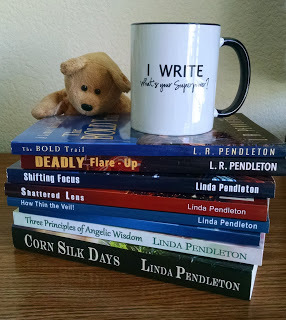
Publishing on the Moon:
On this day in 1994, Jeff Bezos founded Amazon.com. As an author, publisher and disabled shopper, I thank him. I’ve been with Amazon for over 20 years now, and they reminded me of that with a gift recently. I recall my resistance to using my credit card online—but I believe in the beginning I could call and give my card over the phone. Jeff Bezos had said back then, he wanted the biggest bookstore in the world. It reminds me of the publishing contract Don Pendleton had with the late New York publisher, Donald I. Fine, which included Fine’s publishing rights on the Moon. (Don and I laughed, at the time) Maybe that is what Bezos is working toward with his space program. After all, Jeff Bezos is a visionary, and thank goodness, he is. I never could have published 78 books, and also foreign language books at foreign Amazons—without Jeff Bezos’ vision.
~Linda Pendleton
Published on July 05, 2019 14:53
June 7, 2019
While Writing
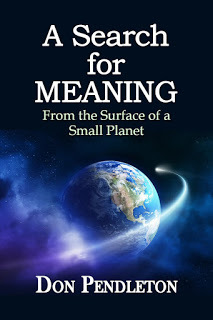
"Often while writing I haven't the faintest idea where a line came from, or a character, or an idea. Very often they come while I sleep, in the shower, while shaving, while hurtling along a crowded freeway in my car–and sometimes they come with such force that I am half-crazy until I can get somewhere and write them down. If you don't write them down quickly, you often lose them because they surface very briefly in the shifting seas of consciousness and then disappear back into the chaos. But most often and most routinely these inner movements come to me while I am seated at the keyboard and inviting them to come dance with me."
–Don Pendleton, A Search for Meaning From the Surface of a Small Planet
Published on June 07, 2019 01:46
May 14, 2019
Stewart Edward White, early 20th Century Writer
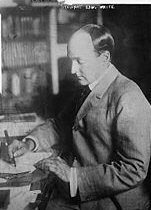
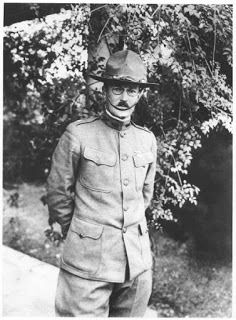
The beginning of adventure novels for men—1901-1920 period. A few months ago, I wrote an article for Paperback Parade about Steward Edward White, an early 20th century writer of popular adventure, Westerns, and nonfiction about birds and nature. He was a conservationist, naturalist, and big game hunter, and his love for nature, conservation, and adventure were to become very much a part of his literary works over his long career. He enjoyed writing about pioneers, the West, logging, gold mining, and nature. Stewart once said his books, including his novels, were stories based upon his actual experiences. Stewart’s first book, The Westerner was published in 1901. He was twenty-eight years of age. That was the beginning of his successful literary career and he would go on to publish more than 50 books and short stories, including Westerns, pioneer and adventure stories, children stories, and nonfiction, over his career that lasted until his death in 1946.Two of his novels, The Blazed Trail (1902) and the Riverman (1908) were about logging in Michigan. His book, The Forty-niners, the California Gold Rush(1918) is an excellent book on the gold rush. A number of his novels were made into movies and television series. I've written new Introduction to some of his books. As the 19th century was coming to an end, literature centered around women's fiction, written by women. Best-sellers were stories of childhood, sentimentality, sugary optimism, and overcoming adversity leading to happiness. It was the success of Jack London's Call of the Wild(1903) that apparently identified the need for men's novels. According to The Popular Book: A History of American Literary Taste, by James D. Holt and published 1950 by University of California Press, Berkeley, Los Angeles, Jack London's story "was a perfect symbol of masculine yearning for the primitive." Holt stated that "other men wrote books largely for their own sex and came to the forefront of popularity with fiction about the outdoor life, set mainly in the Yukon popularized by London, or on the last frontiers of the Northwestern United States and Canada. Among the most popular authors of this school were Stewart Edward White, Rex Beach, and James Oliver Curwood, all of whom came to prominence just after the opening of the century and made the best-seller lists off and on into the 1920's with new novels, or stayed in high popularity through reprints." I was interested in Stewart Edward White partly because of his later nonfiction writing of the paranormal and life after death. In these nonfiction books he treated the adventure into the world of spirit in very much the same way as he did all his other adventurous journeys throughout his life. The style of writing reflected that enthusiastic sense of adventure and exploration, even though it was a journey into the unknown, into the self, and into the after-life. He was able to write about the adventures beyond the veil in very much the same passionate way he wrote about nature and the earthly frontier.
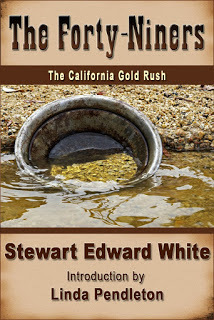
Published on May 14, 2019 18:35
February 19, 2019
The Executioner, Don Pendleton Creates Mack Bolan 50 Year Anniversary book
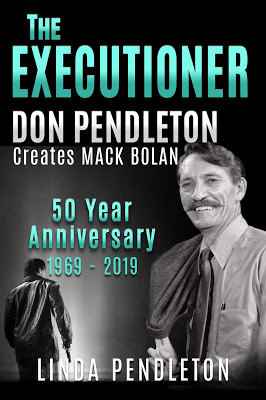
Don Pendleton Creates Mack Bolan
50 Years Ago, Don Pendleton envisioned a fictional character that would soon become a literary bestseller and a phenomenon through which the new action/adventure genre emerged. Mack Bolan, a professional soldier, highly trained and skilled in the use of military tactics and weapons makes a life-altering decision after the tragic death of his family—his war is at home, not in the bloody fields of Vietnam. Mack Bolan takes on a one-man war against the evils and corruption of the Mafia.
This book gives Don Pendleton's insights into the creation of his fictional character, Mack Bolan, and explores why Bolan continues the popularity with readers many decades after he was created.
Linda Pendleton, wife of the late Don Pendleton shares a look-back at two inspiring men, one, a talented author, the other, a skilled fictional hero. Don Pendleton's Original Executioner Series of 37 novels, and a Mack Bolan Short Story, continues to be published for fans and new readers to enjoy.
Now at Kindle and in print. Coming to other ebook retailers on March 1st
Published on February 19, 2019 00:36
December 7, 2018
Catherine Winter Mystery Series Box Set at Kindle
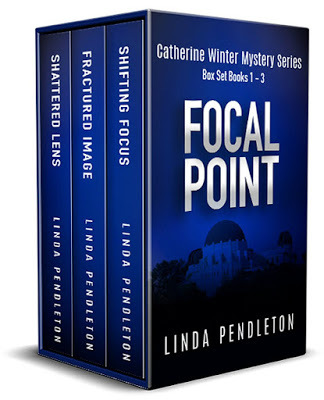
“Hollywood is glitter and gutter. Some make it to the top and stay there, basking in the splendor of it, while others hit bottom and are engulfed by the ugliness of it.” ~Catherine Winter, Private Investigator
Three Catherine Winter MysteriesShattered LensFractured ImageShifting Focus
Kindle
Published on December 07, 2018 19:54
November 29, 2018
Don Pendleton on Writing
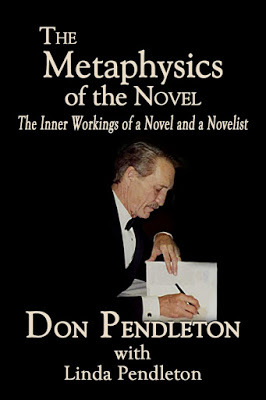
Excerpt from Don Pendleton's "The Metaphysics of the Novel, The Inner workings of a Novel and a Novelist." "To get way down deep, though, the novel provides the deepest and most lasting insights, those movements of mind that come closest to defining the human reality. I also write books of non-fiction and these allow me to grapple with concepts and realities which may lose a bit of credibility in a fictional format, so I am fortunate that my fiction has opened other publishing doorways for me–but I suppose that the novel will always be my main dish because it is such a hellacious challenge. I never know where a novel will take me, the consummate characters I might find there, the adventure and fascinating locales, the truthsI will discover while traveling the high and low roads with my characters."
"It is really not that difficult to get started as a writer. All you really need is a few hours of free time each day, pencil and paper, an inquiring mind. During my first ten years as a writer I was also, at first, an air traffic controller, later an aerospace engineer and deeply involved in the Moon Shot program. By the time I was able to wean myself from the security blanket of a "respectable career," I had produced (and published) some twenty minor novels, none of which earned me great bundles of money but at least gave me some sense that my six kids would not go hungry while "Dad" was trying to build a new career as a writer."
"Okay, yeah, there were a couple of times during the early going when I was about ready to forget the dream and slink back into industry to shoulder my family responsibilities but I hung it through and within a year I was off and running well, doing better financially than ever before, and I have never "looked back" again. I got lucky, sure, but there was more to it than luck. I had a dream, I had a vision, and I had reached a point in my life when "I could not bear" to not play God with my dreams."
"Thirty years later, I am still "not looking back."
Copyright 2000 Linda Pendleton. Available at Amazon and Kindle.
Published on November 29, 2018 15:15
November 14, 2018
The Executioner: Mack Bolan Short Story by Don Pendleton
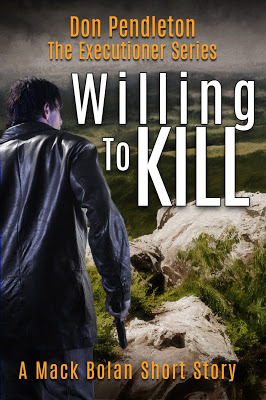
Willing to Kill—
"From first word to last, Don Pendleton is in pure form—as is his creation: The Executioner!"~Jon Guenther, Author
At the beginning of his impossible war, Mack Bolan had not envisioned himself as the arch-foe of the Mafia world. He had simply reacted to a terribly disheartening situation—in the same way in which any man of like talents and ideals would have done—without knowing that soon he would become the most feared and hated enemy of the crime kingdoms.
Bolan had learned to live one heartbeat at a time—with no thought beyond the next battle line—or beyond the next police trap. The men behind the badges were, in Bolan's understanding, "soldiers of the same side," but in the official book, Mack Bolan was the largest criminal of all. And he accepted that, and would have it no other way.
He had also learned early in his war that he was stronger when standing alone—and, indeed, this was how he preferred to operate. He was not "operating" at all, though, that fated morning in Dallas when he stumbled upon the Mafia hit team.
Something large was going down, and Mack Bolan invited himself to the war!
Kindle
"The name of the game is Hit the Mafia. We'll hit them so fast, so often, and from so many directions they'll think hell fell in on them."
~Don Pendleton, Mack Bolan, Death Squad
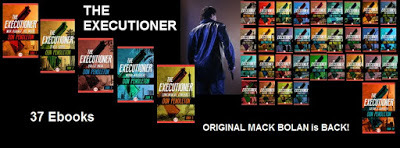
Published on November 14, 2018 01:31
November 11, 2018
Interview with Author John L. Davis IV, by Linda Pendleton.
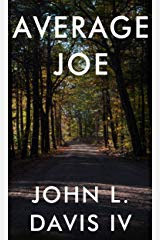
I'm pleased to interview novelist John L. Davis IV, author of the "American Revenant Series," and his latest suspense thriller, "Average Joe."
Linda: John, in our previous correspondence when you did an interview with me regarding my late husband, Don Pendleton's, The Executioner: Mack Bolan Series, you had indicated that a Mack Bolan novel, "Tuscany Terror," written by Stephen Mertz, not only had introduced you to Don's Executioner Series, but to reading and collecting paperback books at a very young age.
At that time, while doing a lot of reading, were you beginning to have an interest in writing novels? Do you recall the first story you ever wrote? And what inspired the story?
John: Linda, thank you for interviewing me. I started writing stories of my own about two years after reading "Tuscany Terror." My shelves were filling with books pretty quickly, and I was reading a little bit of everything, discovering new authors at a wild pace. It was wonderful.
My first few attempts at writing my own stories were all action-adventure oriented. The only one I ever completed was for a school project, and it was my take on the Johnstone post-apocalyptic survivor kind of story. I got some funny looks for that one when it was read in front of class.
The first short story I’d ever written entirely for myself was a dark, twisted little piece about a guy who is “murdered” by his friend when the man intentionally gives him a deadly disease. It was a weird piece, and I still have it, tucked away somewhere in a box. I think only three people besides myself have ever read it, and I intend to keep it that way. I can’t really say what inspired it. On a side note, I can say with surety that I’ve never thrown away anything I’ve ever written. I have it all. Reams of paper with tons of poems, half-written novels, and start-and-stop short stories.
Linda: Who or what has influenced your writing, and in what way? Who is your favorite author or authors?
John: This is a list that could go on for ages, if I let it. I’ll do my best to keep it lean, I promise. Don Pendleton’s “Executioner” series, and William W. Johnstone’s “Ashes” series were formative to my love of reading, and storytelling. I loved the rapid pace and larger-than-life heroes. I’ve always wanted to tell those kinds of stories, the ones that leave you a little breathless and maybe a bit shell shocked, even as you’re reaching for the next one on the shelf.
The other two most influential authors, for me, are Dean Koontz and Stephen King. The depths of the characters and worlds they create took me even further in my literary adventure, and gave me new goals to shoot for. I’ve read and re-read nearly everything they’ve written, numerous times.
Linda: As a novelist, as well as newspaper journalist, tell us a little about what led to your newspaper work. You've also done screenwriting and film work?
John: Writing for a newspaper is something I’d never even considered until about a year and a half ago. I was looking for work, my wife sent me a Facebook post from a newspaper looking for a new writer and I answered. To be entirely honest, I never expected them to give me even a first glance, let alone a second.
I don’t consider myself a journalist. I’m a storyteller, first and always. I enjoy telling stories about local people and events.
Screenwriting was another one of those things that I kind of fell into. I had considered it, simply because I love movies, but never seriously. I’d met an actor/filmmaker via social media and he read one of my short stories, loved it and asked if I could turn it into a script for a short film. I learned the art of screenwriting on the fly, so-to-speak.
That film, titled “Digger” has a few touches to be completed, and he’s hoping to release it next year. Since then, I’ve written several short screenplays, filmed one here with a local director (a sci-fi action short called “Friend”), and have others waiting to be filmed. (I hope.)
Linda: As most writers, I've read a number of books on creative writing and techniques of novel writing. What books on writing have you found to be of value early on in your career, and why?
John: I’ve read several over the years, such as James A. Michener’s "Writer’s Handbook," "How to Write Science Fiction and Fantasy" by Orson Scott Card, just to name a couple, but the one that has done the most for me is Stephen King’s book "On Writing." King has a way of stripping away the mystery and pretense of the writing process from his point of view. It’s the one book I go to the most when I’m struggling with a plotline or character. I find it motivates me like no other book dedicated to the craft of writing has.
Linda: Of the elements that go into a novel such as characterizations, dialogue, action scenes, plotting, sex scenes, and setting, among other things, which do you find easiest for you personally in your art of writing? In other words, what do you consider your strength to be?
John: I’ve never written a sex scene. Some may find that funny, but it’s true. So far, none of my stories have called for it. Action scenes and emotionally powerful moments are two places where I feel I excel. I feel my own blood racing when I’m crafting an action scene, be it a fight or a chase, I lose myself to the moment. The same for the more emotional scenes. I caught myself sniffing back tears more than once when writing my newest novel.
Linda: Now that you have moved from zombies and post-apocalyptic fiction to an adventure thriller genre, with your new novel, "Average Joe," what inspired the new book, and will there will be more with your character, Joe Pruitt?
John: I love the big, over-the-top action heroes, whether it’s Mack Bolan, Ben Rains, Frank Castle or Jack Reacher. Those archetypal characters are always fun, but they’re out there all over the place. I wanted to see that kind of story, but from the point of view of someone who wasn’t hard-core and highly trained. How would he handle the physical act of killing a man in defense of self or someone else. How does someone like that process these moments of helplessness and violence. That was the genesis of the story, itself, but the plot comes from a combination of news stories about human trafficking and my own fears as a father.
Would I be able to do the right thing, would I freeze in fear, or jump on the back of a moving vehicle to prevent the kidnapping of a kid I don’t know? Would someone do that if they saw my daughter being kidnapped?
A big part of what we do as writers is the “what if” game. What if I saw this happening? What if I couldn’t call for help? Then we place our characters in the situations and let them develop their own “what if” reactions.
As for more Joe Pruitt, I have ideas. Always with the ideas. He may turn up again. A little less naive, a little more ready for the unknown, but still just an Average Joe.
Linda: What is your favorite quote?
John: “In the real world, as in dreams, nothing is quite what it seems.” The Book of Counted Sorrows,Dean Koontz. "Aut inveniam viam aut faciam" - I shall either find a way or make one. Attributed to Hannibal when he was told that it was impossible to cross the Alps on elephants.
Linda: Do you have any advice for aspiring writers?
John: Always write. Even on the days you don’t want to. Dream, and dream big, but don’t quit your day job, because “It” isn’t going to happen overnight. Don’t let your mom (dad, best friend, spouse) read your book until after your editor has.
Linda: Tell us anything about you as a writer that you think might be interesting or unusual.
John: I’m never going to settle into one genre. I dislike the idea of being confined to one certain shelf in the bookstore. If I have another post-apocalyptic story to tell, I’ll tell it. I’ve got an unfinished science-fiction novel or two just waiting for the impetus to drive them forward. I’ve got notes on a few ghost stories, and several more suspense thrillers. My writing tastes are just as eclectic as my reading tastes. One day it’s Koontz, the next, Asimov. From men’s adventure to classic fantasy. Every story is a journey, and I hope to take as many rides into the unknown as possible before my final word is written.
Linda: Thank you for such an interesting interview, John. Good luck with your books and your film projects.
John's books are available at Amazon. Visit his Amazon Author Page.
~Linda
Published on November 11, 2018 01:12
September 19, 2018
Five Writing Tips for Authors and Aspiring Authors
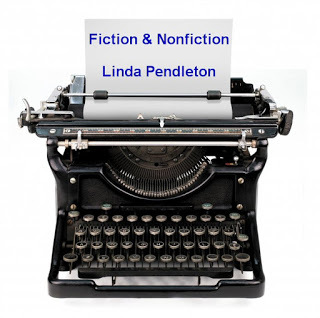
Author Robert W. Walker challenged me to write 5 helpful tips for authors. Here they are.
1. Write, write, write! We write because we have to. We have to allow our creativity the avenue to find its proper place–expressed on the written page.
2. Unless you're under contract to produce a certain book and don't have the freedom to write the book you want, write what you desire, and in the genre you want. As the late, great, Joseph Campbell stated, "Follow your bliss." Campbell's quote not only applies to your life, but also to your writing.
3. Leave a chapter, or even a sub-chapter, with what some refer to as "a page turner," a dramatic moment in the story that invites the reader to turn the page and continue his or her journey through your story. This same strategy can be skillfully used in non-fiction, as well.
4. Do your research. One thing that every novel needs is credibility. Your story must be plausible, meaningful, and entertaining.
5. Make sure your dialogue is sharp, and real. Your characters must talk like real people. Your fictional world must seem more understandable and coherent to the reader than the world in which he lives daily. The writer has to be in complete charge of the fictional world he or she creates.
-Linda Pendleton
Published on September 19, 2018 00:06

